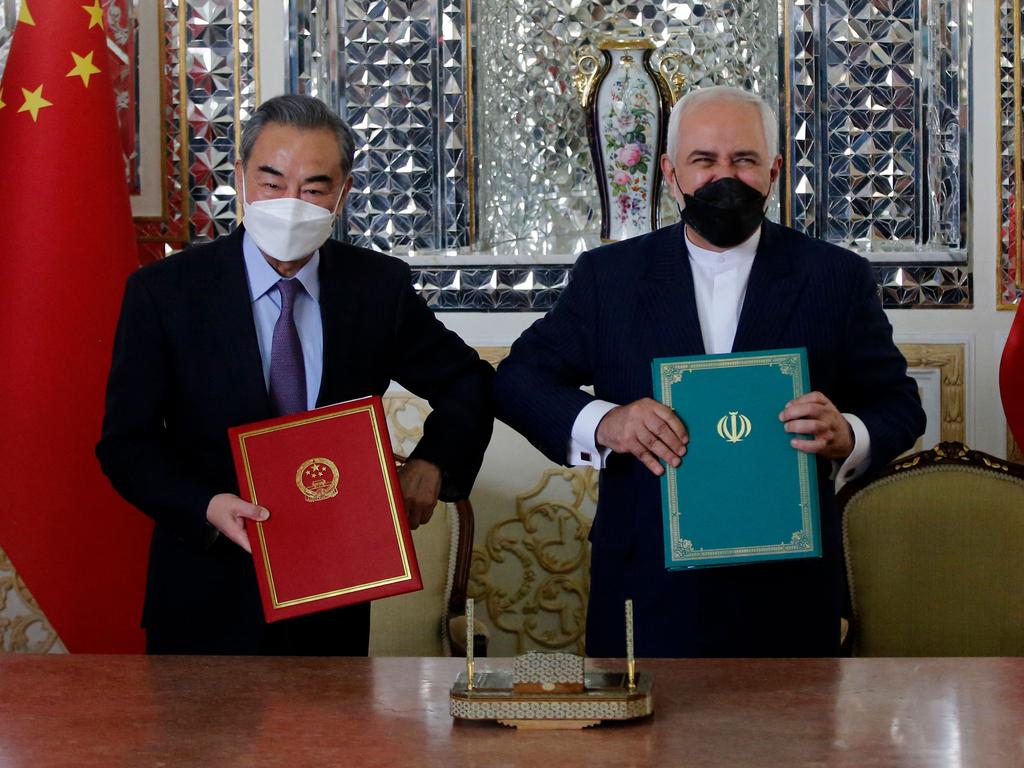Taliban gunmen steal Australian food aid in Afghanistan
Almost 3.7 tonnes of Australian-badged flour were stolen at gunpoint by Taliban soldiers last month and returned only under pressure a few days ago.

Almost 3.7 tonnes of Australian-badged flour earmarked for the poorest, most-vulnerable groups in Afghanistan’s northern Badakshan province under the World Food Program were stolen at gunpoint by Taliban soldiers late last month and returned by the Islamist authorities only under pressure a few days ago.
It took the combined heft of the World Food Program and UN representatives to negotiate the return of the flour, which has since been distributed to families in desperate need.
The brazen theft of food aid for a population that the UN has warned was now facing a winter of famine-like conditions has underscored how febrile the environment is for governments and agencies trying to provide assistance for Afghan civilians without aiding or abetting their new hard-line overlords.
The federal government had sought to avoid such troubles by channelling its $100m aid package for Afghanistan through just three UN agencies: the World Food Program, the office for the Co-ordination of Humanitarian Affairs and the UN Population Fund.
“Everyone was pretty aghast at it,” a federal government source said. “We were ready to say something publicly and get a whole bunch of countries behind us. In the end, it wasn’t necessary because after the UN agencies made their representations, it was returned.”
The Australian has been told the theft by the Taliban, which seized control of Afghanistan in August after 20 years of fighting to regain power following its 2001 ousting by the US, is not the first incident targeting foreign aid, but the Badakshan raid was the most brazen.
WFP Afghanistan spokeswoman Shelley Thakral confirmed an armed raid had taken place but no one was hurt and the Taliban’s de facto Badakshan provincial governor has since established an investigation team that included the head of the affiliate aid agency targeted, a third party monitor and the governor.
“The wheat flour was verified as the food taken and recovered. Eighty bags (3.68 tonnes) of wheat flour has now been confirmed to be distributed to the intended beneficiaries,” Ms Thakral said. “After discussion and negotiation, we retrieved the food and it is now in the hands of people who need it.”
Still, it could not have come at a worse time for aid agencies racing to distribute aid to millions of Afghans facing starvation as a result of a prolonged drought, a pandemic-induced economic slump and a political crisis that has frozen billions of dollars in foreign aid and Afghanistan’s overseas-held cash reserves.
Australian NGOs say their efforts to get emergency assistance into the country have been crippled by the government’s refusal to provide a legal guarantee against prosecution for unintentional breaches of UN sanctions against many Taliban leaders now in government and whose permission must be sought for aid distribution.
The UN and foreign governments see humanitarian aid, which the Taliban desperately needs, as their only leverage to secure concessions over the treatment of women and girls and counter-terrorism and narcotics co-operation.
Australian Council for International Development chief Marc Purcell says that position is costing lives and the group’s multiple attempts to secure legal comfort on the issue has been met by DFAT advice that NGOs should “consult their lawyers”.
“There is a formal process where you can apply for humanitarian exemptions. Some have done that but nothing’s happened … not even a private assurance they’re not going to come after us,” Mr Purcell said.
“It’s a simple thing we’re asking … not to be prosecuted for doing humanitarian work.”
Aid groups also suspect the government’s own fear of breaching UN sanctions has prevented it from more speedily distributing its own aid money.
The Department of Foreign Affairs and Trade denies that, and says it’s consulting with the three UN agencies on how best to distribute at least $65m allocated this financial year.
It also defended its refusal to provide a so-called “humanitarian carve-out” for aid agencies, which the International Committee of the Red Cross has called on all governments to do.
A DFAT spokesperson said it had tried to guide NGOs through the legal minefield but the government did not have the power to provide domestic exemptions to UN Security Council sanctions.








To join the conversation, please log in. Don't have an account? Register
Join the conversation, you are commenting as Logout